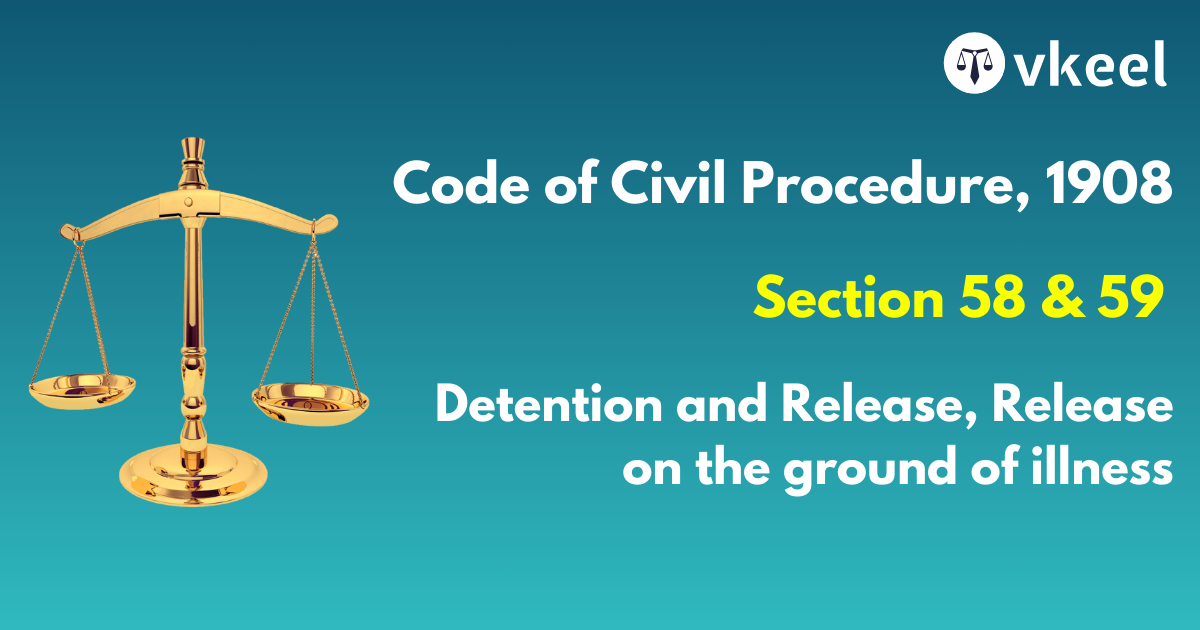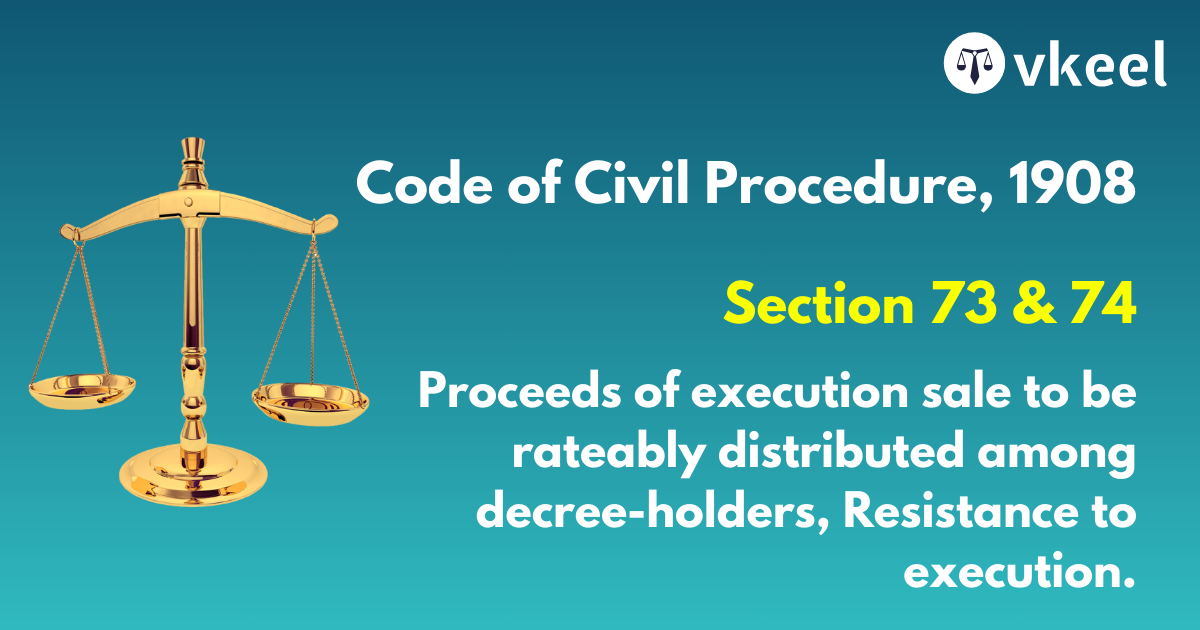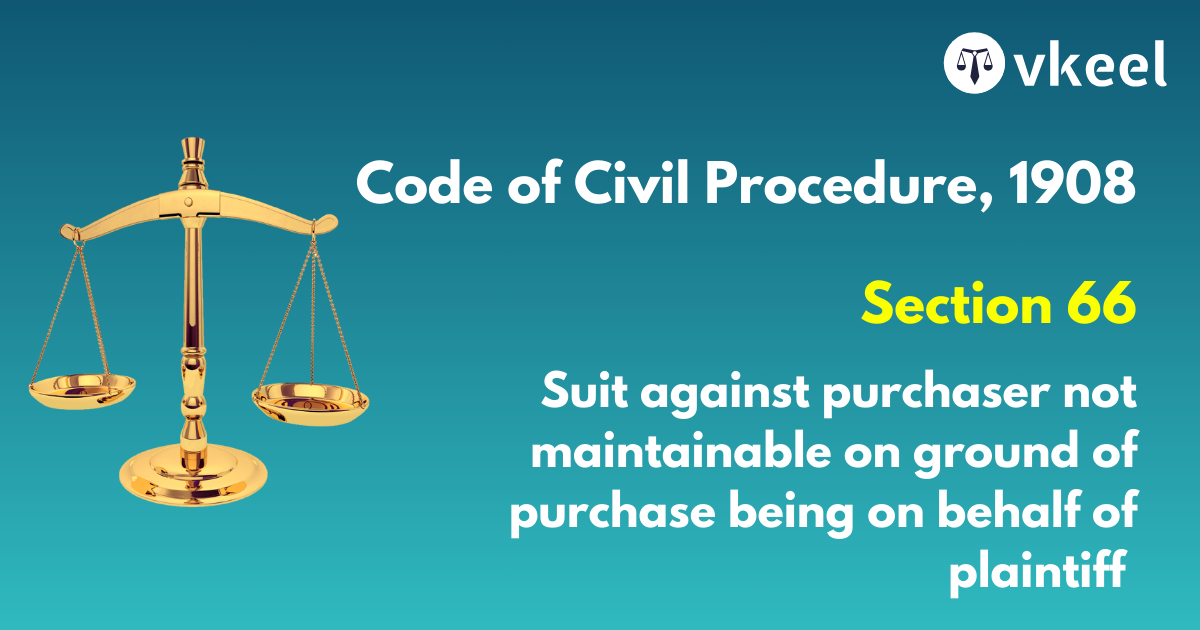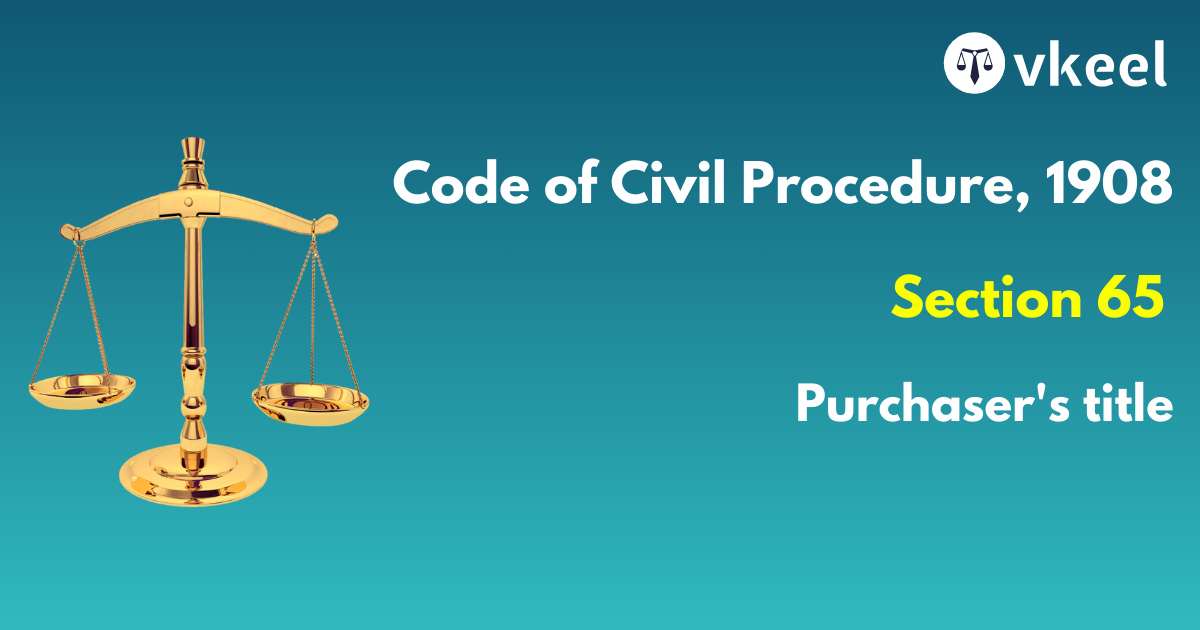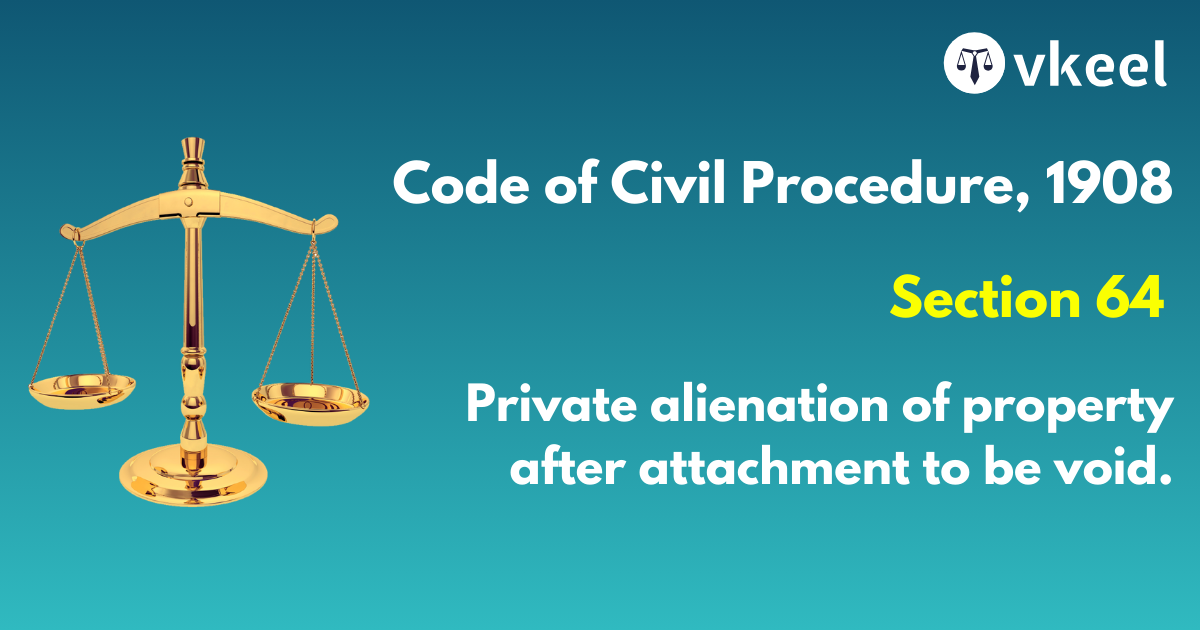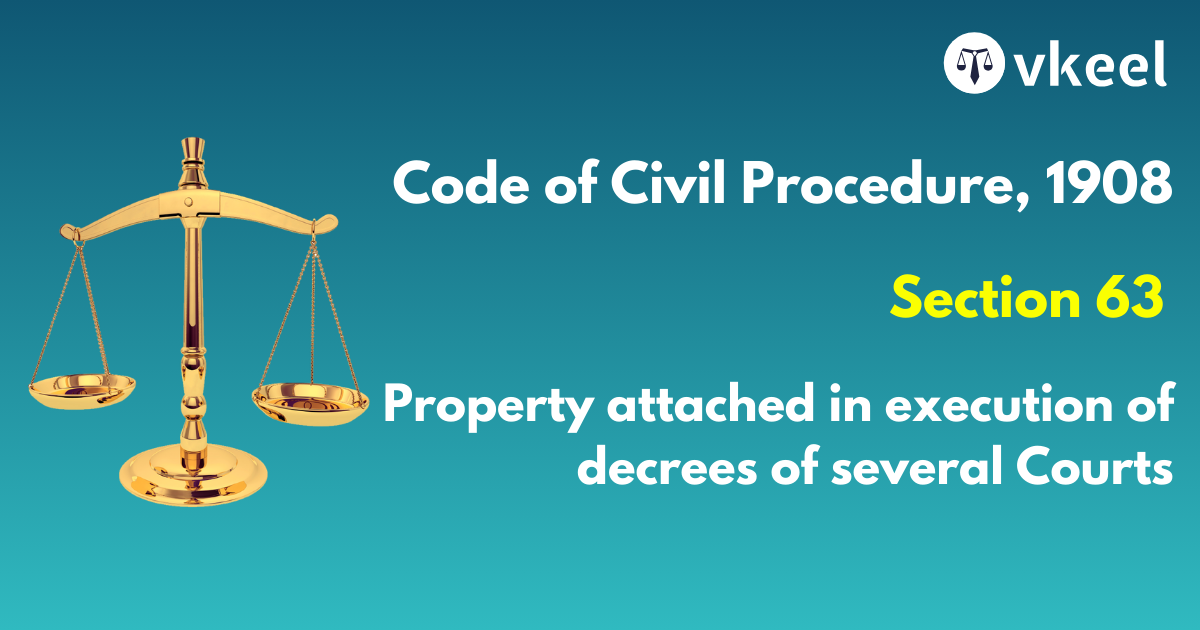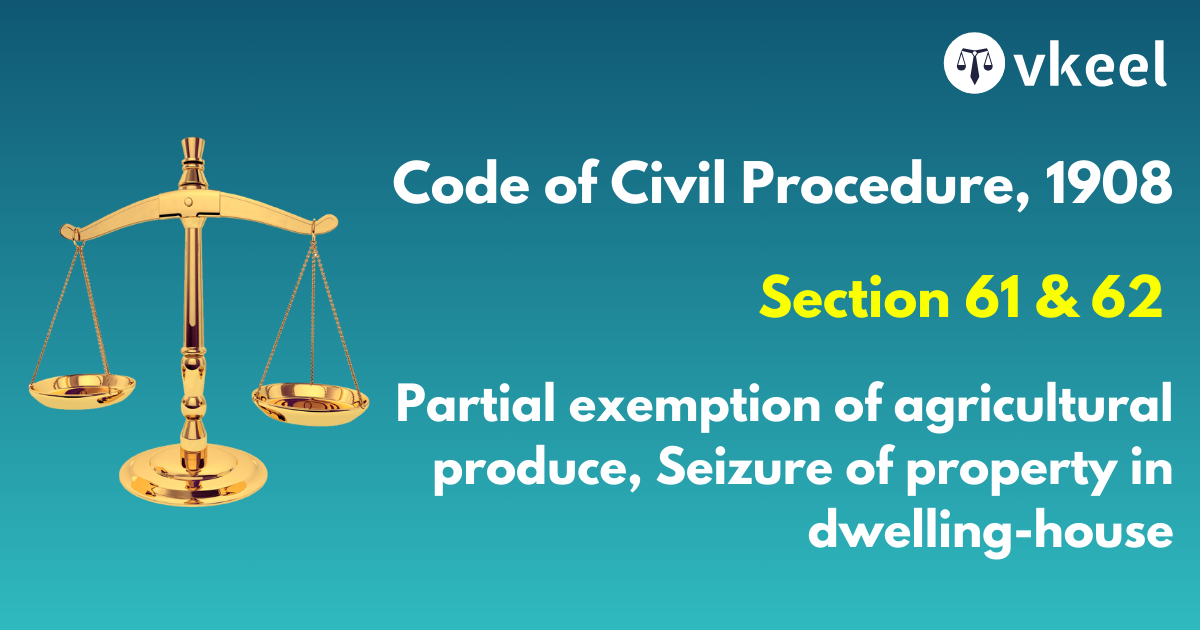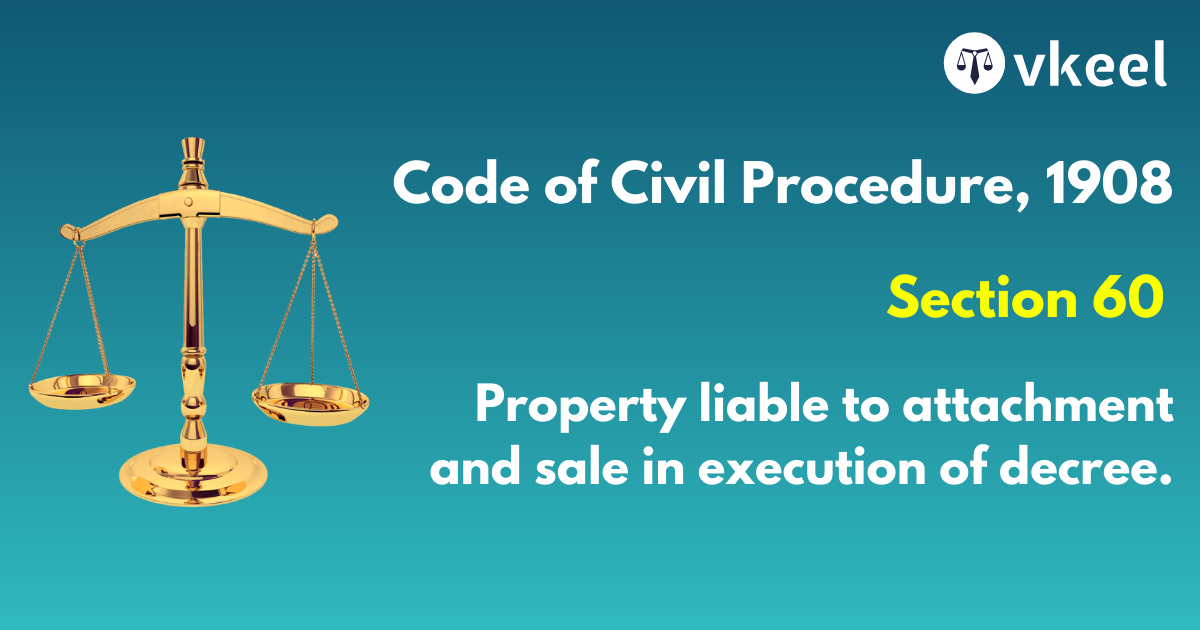Section 58 & 59 of the Code of Civil Procedure,1908
By Joy Puri
Introduction
The Section 58 of the Code of Civil Procedure entails about the arrest and the detention of the Judgement Debtor
Section 58 of the Code of Civil Procedure, 1908
Detention and release
(1) Every person detained in the civil prison in execution of a decree shall be so detained-
a. where the decree is for the payment of a sum of money exceeding one thousand rupees, for a period not exceeding three months, and
b. where the decree is for the payment of a sum of money exceeding five hundred rupees, but not exceeding one thousand rupees, for a period not exceeding six weeks;
Provided that he shall be released from such detention before the expiration of the said period of detention-
on the amount mentioned in the warrant for his detention being paid to the officer in charge of the civil prison, or
on the decree against him being otherwise fully satisfied, or
on the request of the person on whose application he has been so detained, or
on the omission by the person, on whose application he has been so detained, to pay subsistence allowance;
Provided, also, that he shall not be released from such detention under clause (ii) or clause (iii), without the order of the Court.
1A. For the removal of doubts, it is hereby declared that no order for detention of the judgment-debtor in civil prison in execution of a decree for the payment of money shall be made, where the total amount of the decree does not exceed five hundred rupees.
2. A judgment-debtor released from detention under this section shall not merely by reason of his release be discharged from his debt, but he shall not be liable to be re-arrested under the decree in execution of which he was detained in the civil prison.
Section 59 of the Code of Civil Procedure, 1908
Release on the ground of Illness
(1) At any time after a warrant for the arrest of a judgment-debtor has been issued the Court may cancel it on ground of his serious illness.
(2) Where a judgment-debtor has been arrested, the Court may release him if, in its opinion, he is not in a fit state of health to be detained in the civil prison.
(3) Where a judgment-debtor has been committed to the civil prison, he may be released therefrom-
(a) by the State Government, on the ground of the existence of any infectious or contagious disease, or
(b) by the committing Court, or any Court to which that Court is subordinate, on the ground of his suffering from any serious illness.
(4) A judgment-debtor released under this section may be re-arrested, but the period of his detention in the civil prison shall not in the aggregate exceed that prescribed by section 58.
Landmark Case Laws
Shiv Auto Trading Co Vs Oriental Bank of Commerce, 2002
A perusal of section 58(1)(a) of the Code shows that the judgment-debtor-petitioner could be detained in civil prison for a period not exceeding 3 months, whereas he remained in civil prison from 13 May 1997 to 11 June 1997 i.e., for a period of less than one month. Sub- section (2) of section 58 of the Code creates a bar to rearrest the judgment-debtor-petitioner in cases where the judgment-debtor remained in jail for 3 months. Therefore, the immunity to the judgment-debtor-petitioner from the second arrest is not dependent merely on the fact of arrest but also the period for which he was detained in jail as the period of his arrest is less than one month. It is not a case of the kind which would be covered by the bar created by sub-section (2) of section 58 of the Code.
Ghansham Vs Jhorimul, 7 B 431
In case of imprisonment before judgment under O XXXVIII rule 4 the imprisonment already suffered is to be taken into consideration in calculating the period of imprisonment after decree.
Santosh Kumar Mode v Adaita Ballav Satpathy, A 1992 Ori 29, 31
Even detention in civil prison for full term of three months does not cause the debt to get discharged.
Gohel Vs Pandya, A 1987 Guj 160
The period prescribed for detention in prison applies to money decrees only; this section does not provide any period for detention in enforcement of a decree for permanent injunction.
Rajendra Vs Chunder, 23 C 128
The immunity from re-arrest is applicable only when a judgment-debtor is released from detention in jail and not when he is arrested and released without being committed to prison.
Md. Sadiq Vs Chuni 1934
Section 59 is self contained and is not controlled by section 55(3)(4).
Bohoru Vs Jagan, 1933
Asthama and indigestion do not constitute serious illness.
Conclusion
Section 59 thereby clearly entails that a judgment-debtor can be released from detention before the completion of the prescribed term, under certain conditions, such as payment of the decree amount or a compromise with the decree-holder.
To conclude, aforesaid provisions of the Code of Civil Procedure enshrine within themselves important checks and balances on the process of detaining judgment-debtors, ensuring that such measures are not punitive but are instead aimed at securing compliance with a court’s decree.
Disclaimer:
The information provided in the article is for general informational purposes only, and is not intended to constitute legal advice or to be relied upon as a substitute for legal advice. Furthermore, any information contained in the article is not guaranteed to be current, complete or accurate. If you require legal advice or representation, you should contact an attorney or law firm directly. We are not responsible for any damages resulting from any reliance on the content of this website.

